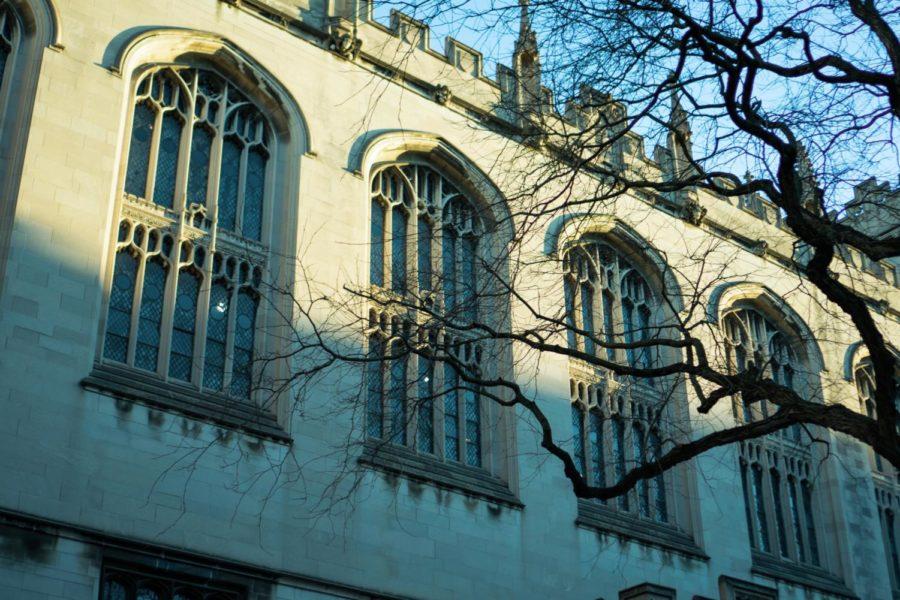Quarters will be shortened to nine weeks of class and autumn quarter will include a weeklong Thanksgiving break beginning in autumn 2021, according to an email sent out by Provost Ka Yee Lee on Wednesday morning.
Currently, quarters comprise nine-and-a-half weeks of class, and students have two days off for Thanksgiving. These changes are part of a set of recommendations for adjustments to the quarter system following a committee review of the current calendar.
“These adjustments result from a comprehensive review of the academic calendar by a committee composed of faculty, academic staff, and undergraduate and graduate students, who worked at the charge of [College] Dean John W. Boyer with support from the Office of the Provost,” Lee wrote. The Faculty Senate and College Council, as well as other deans throughout the University, have also reviewed the changes.
Lee wrote in the email several “key recommendations” that detail the main changes to the quarter system in six bullet points:
· Conclude all coursework and exams by June 1
· Institute a week-long break for Thanksgiving
· Reduce each quarter’s instructional period from 9 ½ to 9 weeks
· Establish a three-day Reading Period, extending from Saturday of the final instructional week through Monday of Exam Week
· Administer exams Tuesday through Friday of Exam Week
· Introduce a three-week September term with limited on-campus course offerings, modeled after study abroad programs and Summer Session
The recommendations are further detailed in a report released by the Committee to Review the Academic Calendar, which Boyer formed in January 2019 to explore potential changes to the University calendar, including possibly changing to a semester system.
The report made it clear that the University should remain on a quarter system, but recommended adjustments to not overburden students.
“Above all, our findings confirm the centrality of the quarter-system to our identity at the University of Chicago,” the committee wrote in the Executive Summary that opens the report. “We also recognize that the quarter system, as currently operated, likely contributes to elevated student stress, although the exact mechanisms here are difficult to capture quantitatively.”
The new September term, which will be three-weeks long, starts post–Labor Day, and students taking classes then would get both autumn quarter credit and financial aid. Currently, the College offers a number of September courses abroad and at the Marine Biological Laboratory alongside its summer quarter offerings. The report also indicates that courses for language, technical, or artistic skills could possibly be taught for the September term, and this recommendation would expand and formalize September offerings.
Currently, faculty that teach in September make overtime pay, but that may change under the new schedule.
“Instructor compensation will be examined separately by the College, Divisions, and Schools,” the committee wrote in the report. “Compensation might involve either extra-service payments (as with Summer Sessions) or the fulfillment of teaching obligations.”
The report’s executive summary also says that autumn quarter will keep its “11-week footprint” but that the entire week of Thanksgiving will be given for break, as opposed to only Thanksgiving and the day after, as is current practice.
Additionally, autumn quarter reading period would be shifted to Saturday of 10th week through Monday of 11th week, with Tuesday through Friday for exams. Currently, reading period spans Thursday and Friday of 10th week.
Winter break would remain three weeks long, the report says, but winter quarter would be shortened to 10 weeks—nine weeks of class; reading period from Saturday of 9th week through Monday of 10th week, with Tuesday through Friday for exams. “The Registrar may include evening scheduling for exams,” the committee wrote in the report. While there is currently no official evening scheduling for classes that don’t meet in evenings during the quarter, some departments, such as computer science and economics, hold evening finals during reading period.
It is not clear whether spring break will become two weeks or remain one week, and the report says “the decision to retain a one-week break or to extend spring break to two weeks will determine the footprint of Spring quarter.” Lee did not address spring break in her email.
Spring quarter is planned to also have nine weeks of class, and reading period from Saturday of 9th week through Monday of 10th week, with Tuesday through Friday for finals and allowances for evening finals. Under the new changes, 11th week would be “reserved for Senior Days/Week, with Convocation events to follow.”
Lee wrote that the report’s recommendations could benefit both students and professors in various ways. “Such benefits include increased flexibility for students to schedule coursework, a better coordinated conclusion to the spring term across all units of the University, and better alignment of the calendar with a range of summer opportunities including research, internships, and summer study,” Lee said.









